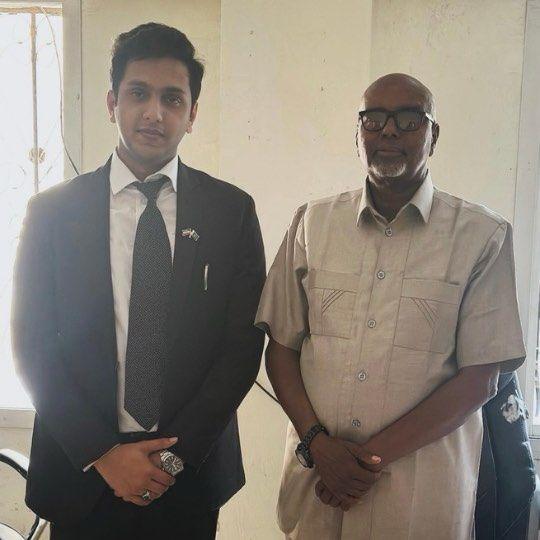By Lilu Toidze-Limin (Georgia)
This paper explores the main challenges Georgia is facing in its pursuit of EU membership and more specifically, it seeks to answer the question: why is Georgia valuable for Europe’s future? Georgia is situated at a strategically important location where Europe meets Asia. It is surrounded on the north and northeast by Russia, on the east and southeast by Azerbaijan, on the south by Armenia and Turkey, on the west by the Black Sea. It has always played a crucial role in the political situation of the South Caucasus region. It is a post-soviet country with huge aspirations to join the EU. Georgia’s membership is determined by internal reforms and external challenges, specifically from neighboring Russia.
Throughout history, Georgia has maintained strong links to Europe. However, after the fall of the Soviet Union in 1991, Georgia aimed to reshape its foreign policy by joining the European Union. Since the end of the Cold War, the EU has made a policy of enlargement. Georgia signed the EU association agreement in 2014 and applied for EU membership in March 2022.For Georgia, joining the EU is far more than just economic growth. It means a democratic government and long-term stability. It also helps balance Russia’s influence in the country.
But will this dream become a reality? Georgia stands out as one of the most proactive countries during its tough journey towards Europe. Public opinion polls consistently show that the majority of Georgian people view EU membership as the pathway to a brighter future. Despite the strong ambition, joining the EU is faced by some serious challenges. Such as unresolved territorial conflicts in South Ossetia and Abkhazia that continue the ongoing tension between Georgia and Russia. Russia is opposed to Georgia’s integration into the EU and NATO and has used different strategies to keep Georgia under their influence.
Main body
Historically, Georgia and Europe share similar religious values. Orthodox Christianity has shaped Georgia since 337 AD and it has become the foundation of the social and cultural development in Georgia aligning it to Europe’s shared Christian values and traditions. For much of European history, Christianity was more than just a religion. The Christian Church helped shape laws and governments in Europe, and it also guided people’s moral and ethical values. In Georgia, Orthodox Christianity has had a similar impact, becoming a key part of the country’s national identity. This religious link connects Georgia to Europe, since both share a history of Christianity that has influenced their cultures and societies.
Since Georgia has gained independence (in 1991) after the collapse of Soviet Union, it has been striving for closer ties with European Union. Georgia has always been very vocal about its ambitions to join the European Union. In 1999, Georgia’s Prime Minister Zurab Zhvania said, “I’m Georgian, and therefore I am European,” when speaking to the Council of Europe. In his speech, he shared Georgia’s hopes of joining the European Union and explained the country’s foreign policy plans for the next ten years. After the Rose Revolution in 2003, Georgia strengthened ties even more closely with the EU. Over the years, Georgia has made notable progress in its relationship with the EU, through agreements like the European Neighborhood Policy, the Eastern Partnership, and the Black Sea Synergy. In the early 2000s it became clear that the country sought membership in the EU, as it signed a range of documents.
EU partnership program:
The Eastern Partnership program (EaP) is a program that is aimed to strengthen ties between EU, its member countries and the following post-soviet countries: Armenia, Azerbaijan, Belarus, Georgia, Moldova, and Ukraine. It was launched in 2009, and Georgia became one of the founding members of it. The EaP was mainly established to support these countries, enrich trading relations and strengthen political associations. This also allowed Georgia to receive support from Europe in trades, human rights and other essential areas. (Eastern Partnership, 2022)
EU-Georgia association agreement:
In 2014, Georgia took a huge step towards a European future by signing the association agreement. The EU-Georgia Association Agreement recognizes Georgia’s desire to be part of Europe and its choice to align itself with European values. One of the key components of this agreement was the Deep and Comprehensive Free Trade Area (DCFTA). DCFTA lowers the taxes that European companies have to pay when exporting to Georgia.
EU enlargement strategy:
The EU has expanded through seven rounds of enlargement, increasing from 6 founding members to 27 by 2013, with the UK leaving in 2020. 2004 was a major milestone for the enlargement, as ten countries joined the EU. The EU’s accession process involves several stages, step one being the country’s application for membership. The European Commission assesses the country’s readiness based on different criteria. If a country meets the criteria, the European Council can approve the start of negotiations or firstly grant a candidate status. The negotiations are detailed and cover over 30 policy areas, and the country must align its laws and institutions with the EU’s standards. Once all EU members are satisfied with the country’s progress, an accession treaty is signed, and the country becomes an EU member.
Recently, the EU’s approach to enlargement has changed, with a new methodology introduced in 2020 to boost the process for Western Balkan countries. The EU now supports candidate countries through pre-accession assistance, including financial aid and technical support to help them meet EU standards, focusing on areas like the rule of law, human rights, and public administration reform. (EU Enlargement, n.d.).
- Georgia applied for EU membership in March 2022 and was granted candidate status in December 2023.
Georgia’s progress towards EU membership
Georgia has made important changes to meet EU’s standards. These standards/criteria known as the Copenhagen criteria, in order to become a member, the country must achieve:
- Stability of institutions guaranteeing democracy, the rule of law, human rights and respect for and protection of minorities
- The existence of a functioning market economy as well as the capacity to cope with competitive pressure and market forces within the Union
- The ability to take on the obligations of membership including adherence to the aims of political, economic & monetary union.
(Accession Criteria, EUROPEAN UNION)
Georgia has made important progress towards building a democratic system. After the Rose Revolution (November 2003) the country moved away from authoritarian ruling system and worked towards establishing free and fair elections, multiple party politics and constitutional rights. There are still issues of corruption in some areas of public life despite the efforts of reducing it. Media freedom is another problem, although there has been progress there still some media outlets spread propaganda because of governments influence over them.
Georgia has adopted many new laws to match EU’s requirements. For example, made changes to trade laws and environmental standards. There have been improvements for anti-corruption laws and electoral reforms improving transparency. Despite this, in some cases the laws on paper are not fully followed in practice. Among post-Soviet countries, Georgia’s economy has been one of the fastest-growing in recent years. According to a report by Global Development Finance (GDF), Georgia’s economy grew by more than 10% in 2006-2007, driven by a large inflow of foreign investment and strong government spending. (Global development finance 2008: the role of international banking: Review, analysis, and outlook (English). Global development finance Washington, D.C.: World Bank Group, 2008)
On the report of the National statistics office of Georgia, Georgia’s economy grew by 7.5% in 2023, a slowdown from the 11% growth seen in 2022. From 2011 to 2023, the country’s annual GDP growth averaged 5.38%, with the highest growth recorded at 11% in 2022 and the lowest at-6.3% in 2020. (TRADING ECONOMICS. (n.d.). Georgia full year GDP growth.)
To achieve stable economic growth, it is essential to improve the investment climate and enhance the efficiency of private companies. Promoting tourism, agriculture and small manufacturing businesses are also key. A stable economy is the foundation of a strong country. Georgia’s journey towards a European future still face difficulties. Since 2008 war between Georgia and Russia, Georgia has lost control over the regions Abkhazia and South Ossetia, which are now occupied by Russia. EU requires for candidate countries to control their entire territory, so Georgia’s unresolved territorial conflicts pose a significant challenge. Russia recognized these Abkhazia and South Ossetia as independent states but continues political and military control over these regions. Georgias seeking support from EU and NATO to regain it territorial unity.
Over the years surveys and studies have shown that public support for joining the EU in Georgia is generally high. Library of NDI Georgia public opinion research did a public opinion survey the dedication of Georgian people to European Integration. The most recent survey of October- November 2023 showed the following results.(library of NDI public opinion survey, 2023)
Over time, the aspirations of Georgian citizens to joining the EU were relatively similar, with more than 50% agreeing with the statement over the span of 11 years. this reaffirms how dedicated Georgians are in terms of the EU membership. Many Georgians see the EU as a symbol of democracy, human rights and economic development. The support of the EU is significantly strong among young people, who view Europe as a huge source of career opportunities.
Georgia has a long history of being controlled by foreign powers. Because of this, many Georgians are cautious about outside influence, and the memory of Russian control is still strong. Georgians want to be independent and keep their national identity, but this sometimes conflicts with the idea of joining the EU. While the EU offers benefits like a better economy and politics, it also comes with rules and requirements that might feel like a loss of control. As Georgia will move closer to EU membership it needs to balance European aspirations with deeply engraved national identity.
Russia’s Opposition:
Russia strongly opposes to the idea of Georgia joining the EU. Russia views the expansion of both EU and NATO into Eastern Europe and the South Caucasus as a challenge to its dominance. Russia has already lost political control over several former Soviet countries, which have joined both the EU and NATO. If Georgia becomes part of the EU, it would be another blow to Russia’s position in the region. Russia has long considered the South Caucasus as part of its sphere of influence. While Georgia’s EU membership does not automatically mean joining NATO, Russia often sees them as closely associated. The EU’s “Eastern Partnership” program, which Georgia is part of, is viewed by Russia as a path to NATO membership.
If Georgia joins the EU, it will strengthen the EU’s presence and influence in the South Caucasus. This would shift the balance of power in the region, moving it away from Russia’s sphere of influence and bringing it closer to the West. If Georgia successfully joins the EU, it will likely create ongoing tension between Russia and Western countries.
Why Georgia’s membership matters for Europe’s future:
Georgia is geographically placed inbetween Europe and Asia, making it a critical geopolitical player. Its location allows it to serve as a bridge for energy and trade routes that connect Europe with Central Asia and the Middle East. For centuries, Georgia’s position along the Silk Road and other major trade routes between Europe and Asia has given it a clear economic advantage. Even today, this strategic location remains a key asset. EU members want to increase their influence in the Caucasus region because it is an important area for energy, transportation, and trade. The region also provides a link to the resources of the Caspian Sea, Iran, Central Asia, and China. The Caucasus is becoming more important for the stability and security of Europe.
Economy: Georgia offers significant investment opportunities, particularly in the manufacturing sector. Between 2010 and 2019, Georgia attracted considerable foreign direct investment (FDI), and the trend is expected to continue, especially in export-oriented industries. Georgia’s location at the crossroads of Europe, Asia, and the Caucasus makes it an ideal spot for businesses seeking access to regional markets, especially European markets.
One key opportunity is the processing of agricultural products. Georgia’s fertile land produces a variety of raw materials. The country’s low labor costs make it an attractive place for businesses to set up and access EU markets through trade agreements like the Deep and Comprehensive Free Trade Area (DCFTA). Georgia’s food processing, including fruit, vegetable, and wine production, has especially strong potential for export.
Another growth area is manufacturing textiles and apparel. With its relatively low labor costs, Georgia could become a competitive player in textile production, supplying European markets. Furthermore, Georgia also offers opportunities in renewable energy. With its rich natural resources, including hydropower, wind, and solar energy, investments in sustainable energy production are a growing area. This sector is especially appealing for European companies. (Country Profile | About Georgia | Trade With Georgia, n.d.)
Tourism: Tourism is a key driver of economic development and has seen significant growth in recent years, becoming a major source of income. The Georgian tourism industry is highly diverse, with offerings ranging from summer sea resorts and year-round mountain resorts. Between 2003 and 2018, the number of international visitors to Georgia grew outstandingly, rising from 300,000 to 8.7 million. Tourism also had a particularly strong year in 2023, with international visitor numbers surpassing seven million. In addition, Georgia recorded 4,669,467 international tourist visits in 2023, reflecting a 27.8% increase compared to 2022. (2023 Summary Report and 2024 Plans Presentation of Georgian Tourism and Aviation Sectors, n.d.)
Transport: Going through the country is the shortest route connecting the black sea and the Caspian region. The construction of the new Baku-Tbilisi-Kars railway line is nearing completion and is expected to significantly boost trade in the region. Georgian railway is a vital link between Europe and Asia. The railway network spans 1,342 km and has a capacity of 28 million tons per year. Georgia also has two key operational ports along the Black Sea coast: Batumi and Poti. The Batumi seaport has become an important core in Eurasian transportation. The Poti seaport, connects the Romanian port of Constanta and the Bulgarian port of Varna with landlocked countries in the Caspian and Central Asian regions. (Country Profile | About Georgia | Trade With Georgia, n.d.)
Energy transit: Georgia is part of several important energy pipelines, such as the Baku-Tbilisi-Ceyhan pipeline and the South Caucasus Pipeline, which transport oil and gas from the Caspian Sea to European markets. Georgia joining the EU would further secure energy supply routes, making EU less dependent on Russia for energy. (Baku-Tbilisi-Ceyhan | Georgian Oil & Gas Corporation, n.d.)
Conclusion
To sum up, Georgia’s path to EU membership is a tough journey determined by internal reforms and external challenges. Georgia faces significant obstacles to EU membership, especially with Russia, as Georgia is a post-soviet country and is constantly under Russia’s influence. As a strategically located country, Georgia holds significant geopolitical and economic value for Europe, with historical ties, shared cultural values, and aspirations for democracy. However, unresolved territorial conflicts, in South Ossetia and Abkhazia, remain a major hurdle to fulfil Georgia’s goals.
Despite these challenges, Georgia has tried very hard over the years to align itself to Europe’s standards. Especially in terms of political reforms, economic growth, and trade relations. Moreover, Georgia’s membership would strengthen EU influence in the South Caucasus and provide new opportunities for economic collaboration, especially in agriculture, manufacturing, and renewable energy.
Considering these factors, Georgia’s EU membership is not only beneficial for the country itself but also for Europe’s broader goals. The continued support of Georgian citizens for EU integration, despite the external pressures from Russia, reaffirms the country’s ongoing commitment to a European future





